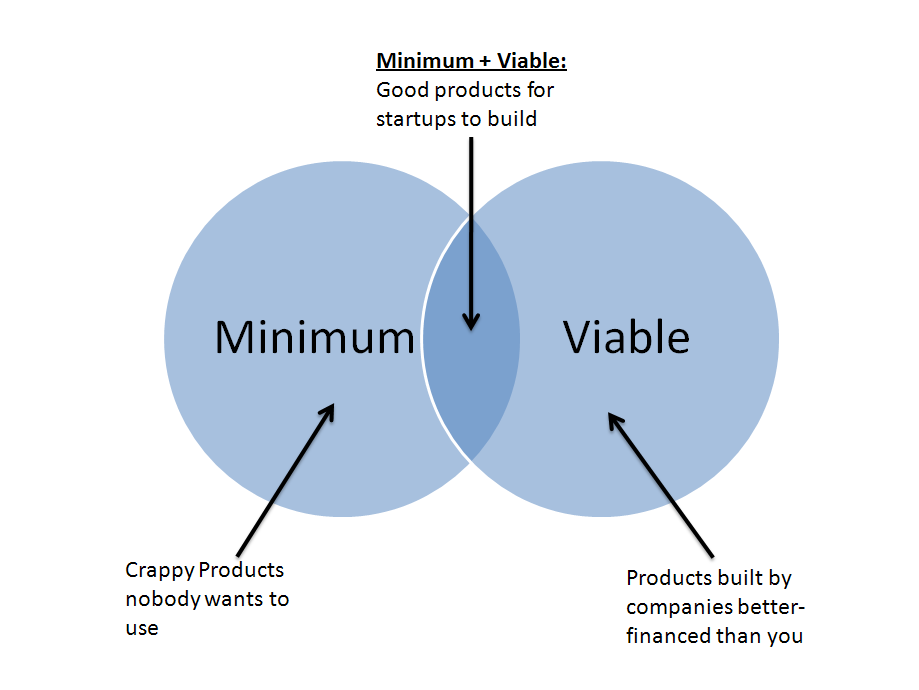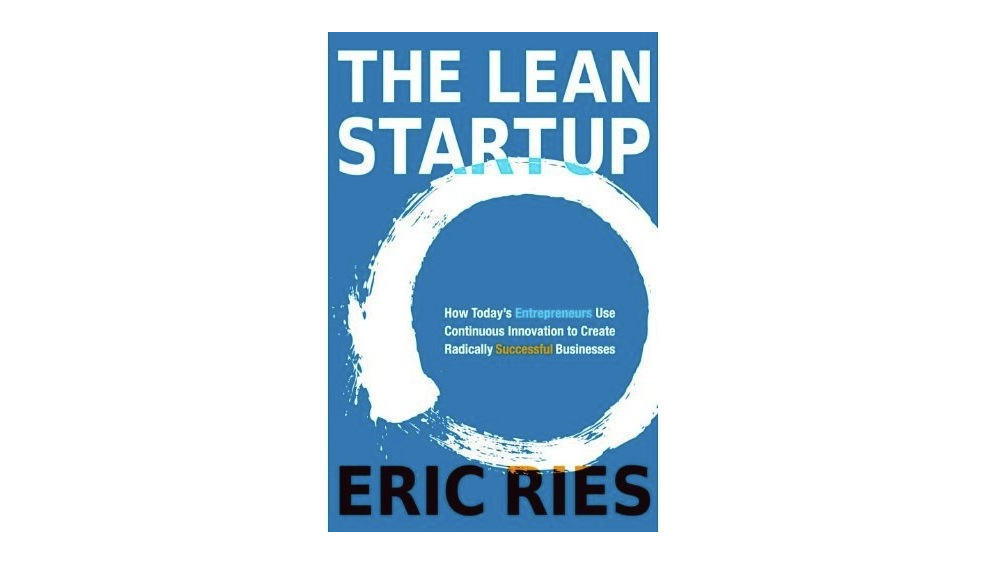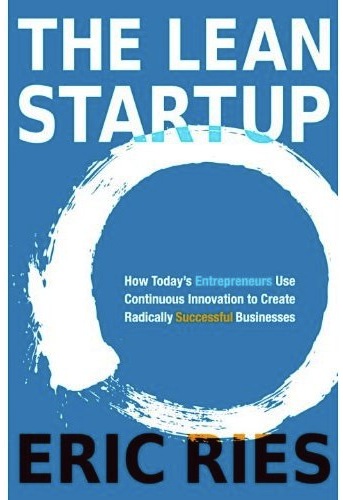The following is a quicknote on The Lean Startup…
Eric Ries is a Harvard Business School lecturer on entrepreneurship. The great man story is the dominant view of entrepreneurs. These great men do not explain how they did it, however. But Reiss says there is a methodology to success as an entrepreneur. He believes in entrepreneurial management. Validated learning is essential for entrepreneurship, and that means knowing that businesses have to be built with measurable feedback. Innovation management is the way to do entrepreneurship. Notice that it ain’t called “innovative accounting.” Management and accounting is the way forward in entrepreneurship according to Eric Reiss. We need to get good at the boring stuff, entrepreneurship is everywhere. Part of Ries’ goal in this book is to suggest that entrepreneurs need a more rigorous definition of the startup.
Defining Entrepreneurship: Figuring out a sustainable business when we have no benchmarks is extremely difficult and fraught with uncertainty. This way of working is rather different from the bureaucratic structure of a typical company. A startup is an experiment asking should this product be built, not can it be built. We need to asked “should it be built” first. If your idea is about being bought from a larger company (according to Eric Ries), you are doing a good thing because it means that the startup is likely to be eaten up, and utilised by the corporation.
Eric Ries is a cheerleader for entrepreneurs because he actually failed in the startup world quite consistently. He has been successful, however in selling a typology for success that typology is academically framed hence his HBS work.
Entrepreneurship is management. based on what Fred Taylor’s Scientific Management measures, Eric Ries believes that Fred Taylor is extremely important for management. For Ries, the question of our time is should a product be built, not can it be built. Fred Taylor dealt with the question of whether a product could be built, while Eric Ries’ thesis is to ask should a product be built. Eric Ries has not been able to successfully create his own business, by creating a methodology to understand how one should create their business. This methodology is largely taken from the tech coding mentality of creating the minimum viable product and iterating on a regular basis until you have isolated the optimal product. Ries also assumes that the customer is right and that the entrepreneur should build towards wherever the customer appears to be most engaged through their interaction with your minimum viable product. That is a problem because as Henry Ford has said, if he listened to customers he would have likely built a faster and cheaper horse and carriage rather than an automobile.
 Following Others: Doing what successful people have done is not going to work, because there are no generalisable trends in entrepreneurship. Instead, Eric insists on his scientific framework of talking about his experience in the field, and his successes and failures. He completely flops on any criticism of his work by stating that this is a growing tree of ideas that he is building. If this is true then why is he assuming his methodology is the right one? Of course, giving him and his ideas the benefit of the doubt is ideal.
Following Others: Doing what successful people have done is not going to work, because there are no generalisable trends in entrepreneurship. Instead, Eric insists on his scientific framework of talking about his experience in the field, and his successes and failures. He completely flops on any criticism of his work by stating that this is a growing tree of ideas that he is building. If this is true then why is he assuming his methodology is the right one? Of course, giving him and his ideas the benefit of the doubt is ideal.
Protecting Ideas: I think Eric Ries’ view is generally true; don’t worry about people stealing your ideas because it is very unlikely. They don’t have time, and there is no way that they would risk it. At the same time, you might have the missing piece to their idea, so by sharing it you will enrich someone else at your own expense….No one owns ideas where the value of that idea is not realised. Innovator’s Dilemma is that big companies have lots of ideas but cannot implement them because they are captivated by their customer’s demands in the immediate future. There is therefore limited room to innovate as corporations are stuck managing their existing success. So, it’s rarely the case that company can actually take risks with new business models unless the senior management is committed.
http://en.wikipedia.org/wiki/Innovator%27s_dilemma
Entrepreneurial Management: Pivoting is at the core of entrepreneurship. The good entrepreneurs do not have better ideas compared to the bad entrepreneurs, but the good entrepreneurs don’t give up, they are able to change the strategy without changing the vision. The startup runway is about asking how much runway is left until we either take off or crash into the corn field. You can extend the runway by getting more funding but you only have a limited number of pivots before your project fails. You can achieve failure by building a great business plan and then go out of business. If you are building something that nobody wants then that is rather silly. In management, forecasting and planning really only make sense in a corporate operating system environment, and yet entrepreneurs are proud of having met, and matched the deadlines that they set out for themselves, even if they completely failed to grow their business. The Lean Startup suggests a way to measure performance through A/B testing and validating learnings that reveal positives about performance which DOES MAKE A LOT OF SENSE…
 Departmentalisation Is Problematic: It is our collective responsibility to understand marketing. Your value proposition has to be compelling. Lean means looking at what the customers most value. What do we do if we don’t know who the customer actually is. They tested it. IMVU created a product, they wanted to get feedback and launched the product after building it for a long time. They wanted to create a micro-currency but instead of testing all along the way, they perfected something that wasn’t wanted. They had to pivot away from their strategy. Eric’s coding for this avatar product had to be thrown away. You can always use learning to justify your failure. But learning is the most valuable asset according to Eric Ries. Why didn’t IMVU think about learning throughout? Which ones can we fix? Why spend that time, and energy talking about that stuff.
Departmentalisation Is Problematic: It is our collective responsibility to understand marketing. Your value proposition has to be compelling. Lean means looking at what the customers most value. What do we do if we don’t know who the customer actually is. They tested it. IMVU created a product, they wanted to get feedback and launched the product after building it for a long time. They wanted to create a micro-currency but instead of testing all along the way, they perfected something that wasn’t wanted. They had to pivot away from their strategy. Eric’s coding for this avatar product had to be thrown away. You can always use learning to justify your failure. But learning is the most valuable asset according to Eric Ries. Why didn’t IMVU think about learning throughout? Which ones can we fix? Why spend that time, and energy talking about that stuff.
Why not create a screen shot to see who is interested in this product. You should fake your product until you make it. How do you achieve this learning with minimum effort. Stop wasting your time. You need to focus on the fundamental learning process by measuring the reaction of customers. Continuous deployment means 50 times a day, and then it is running into production because there is disciplined interaction of the product. You need a system to evaluate whether an idea is any good. We need to measure this product to understand that it is any good. The process relies on eliminating waste.
Vanity Metrics: Ries believes that we need to hold entrepreneurs accountable by avoiding vanity metrics (likes, views). Entrepreneurs are able to sell themselves on the vanity metrics generated by their product. That they have over 5 million hits a day or whatever. When times get tough they point to the marketing people down the hall, and blame them. Once there are stakeholders involved it gets complicated. Money always gets spent, and employees were working but we like to blame the vulture capitalists for being too conservative. We’re saying that the current accounting paradigm doesn’t work for entrepreneurs. Middle managers hate innovation because any disruption to the operations of the company will threaten the likelihood of them making their quarter. Making the quarter is essential. Building up inventory for a product is key. Eric Ries advocated “Product Market Fit” and “Using Innovation Accounting”. You need to meet product market fit but what that term really means is that your idea is worth building.
 Minimum Viable Product: It’s great if your MVP launches well. You can fake the automation, and run the test to see if it will actually work. There is no penalty for shipping your MVP too early. So you should create a fake app. Google became retroactive geniuses when they simply put up a search box instead of all the portals associated with Yahoo. People claimed they planned to have a simple search box but in reality, Google didn’t, they actually wanted to get portals up for different categories but they didn’t have enough time, and pushed out their product quickly.
Minimum Viable Product: It’s great if your MVP launches well. You can fake the automation, and run the test to see if it will actually work. There is no penalty for shipping your MVP too early. So you should create a fake app. Google became retroactive geniuses when they simply put up a search box instead of all the portals associated with Yahoo. People claimed they planned to have a simple search box but in reality, Google didn’t, they actually wanted to get portals up for different categories but they didn’t have enough time, and pushed out their product quickly.
Innovation Accounting: if you have a spreadsheet with the P&L or if you have no customers then you don’t have anything so you need to create a minimum viable product. It’s much better to have bad news that’s true rather than good news that is false. You need to tool the engine, and drive the base line. You need to decide to pivot or persevere. Pivot meetings happen when there is a disaster, when you know that you will have to pivot. Every 8 weeks, you need to ask if we should be pivoting.
Work Flow: Working on a single piece flow is superior to sectionalising the production line. This is the opposite of Ford’s production line. You spend more time moving stacks around than actually stuffing the envelopes on an individual basis. In fact, it is superior to do the counter-intuitive thing which is to do one envelop, and then mail it out and see what the response is rather than to actually do all 100 envelops, and find out the glue doesn’t work, and the newsletter isn’t appealing. Cluster Immune System, you need to have iterations in API. Don’t try to ship a final product that didn’t work. You need to test your market better according to Ries.
http://www.youtube.com/watch?v=L8tkkfya2Xo&feature=related
How Do You Approach Investors: how to sell business ideas. IMVU venture capital was raised, and then they pivoted. VC offices are only interested in million dollar investors. Create a micro-scale experiment for your company. Ries often supports doing cohort analysis of your market. Do a split testing of your market. http://en.wikipedia.org/wiki/Cohort_analysis
Testing Is The Key To The Lean Startup……
Critique of The Lean Startup: Eric Ries didn’t mention having the right people or team. There is a lot of content out there about team building. You need to start with a market analysis about the product. He seems to think that he is absolutely right, and then he states the opposite, that you should take his ideas with a grain of salt always. He is paradoxical or at least rests on the idea that the methodology is solid but you need to test out your hypotheses so that you are responsible (not Ries) when that methodology fails you. He talks about really annoying buzzwords, and then uses them non-stop. He knows influential people, and he wants you to know that but the problem is he is only innovative in that he has created a methodology that many people apply anyway, and he’s articulated it in a vaguely academic fashion. Still, kudos to his articulating what others know instinctively.


